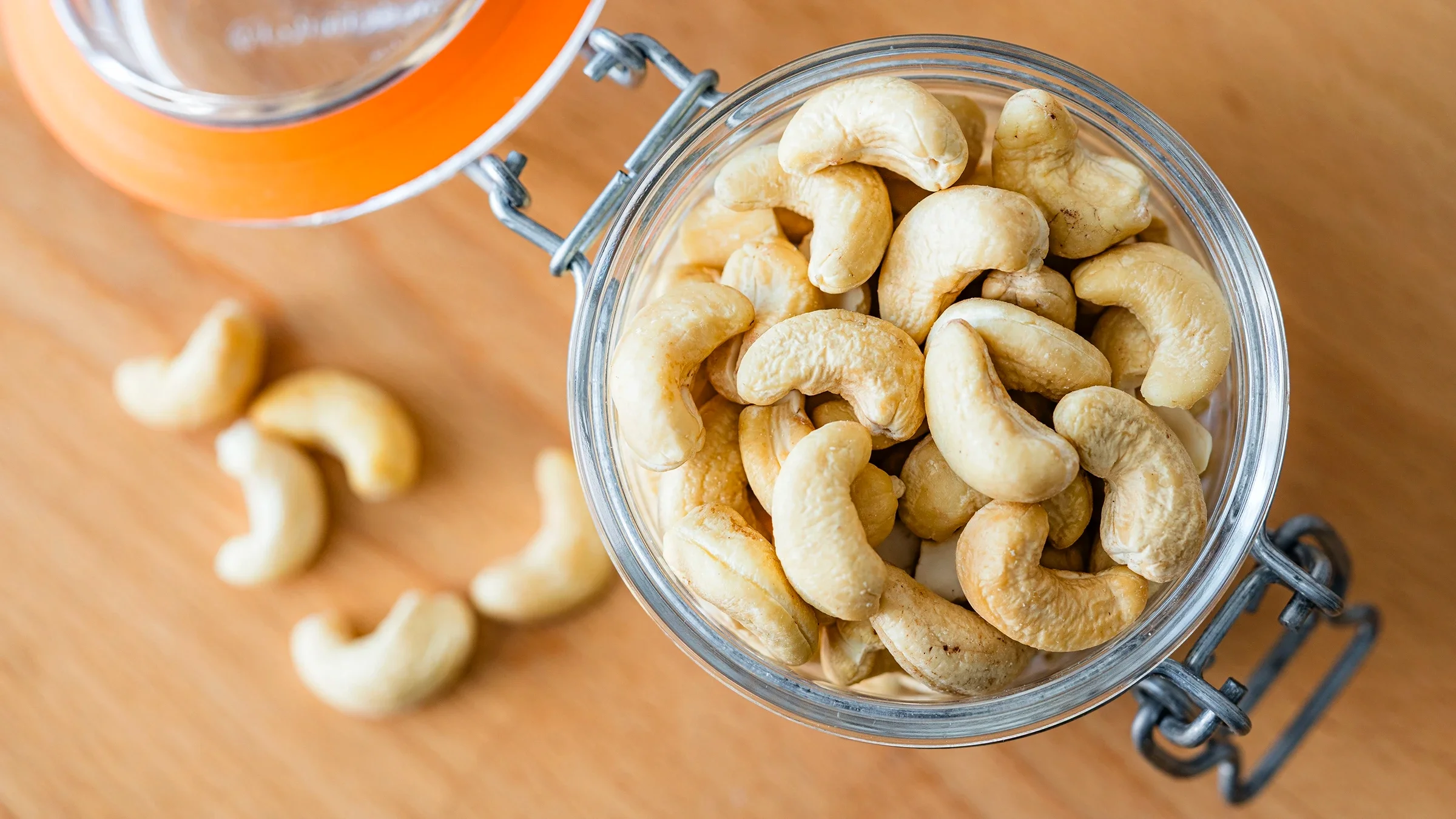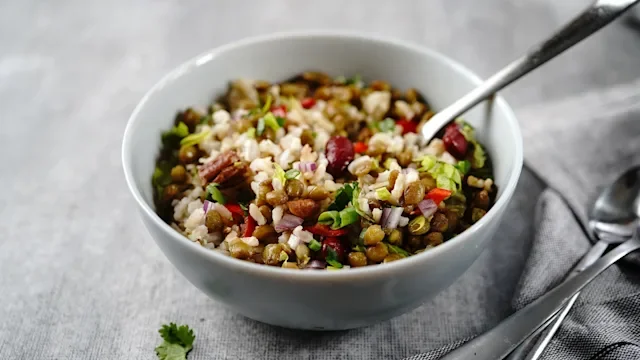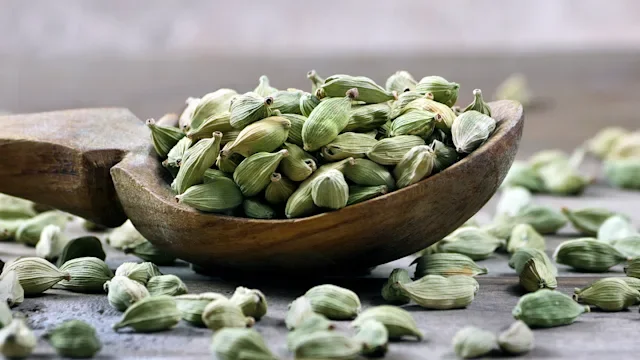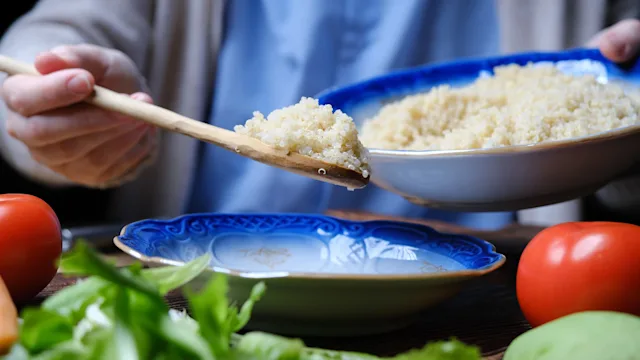Key takeaways:
Cashews contain healthy fats, antioxidants, and plant-based protein.
The nutrients in cashews can support heart health, blood sugar, and weight management.
Try to choose cashews that are either raw or dry roasted to avoid high amounts of salt, artificial flavors, sugars, or added oils.
Cashews are one of the most popular types of nuts in the world. Their versatility is likely one reason why — they can be eaten raw, roasted, cooked into savory dishes, or blended as cashew butter or cashew milk. But cashews are more than just easy to use. They’re also packed with nutrients that give them many health benefits. Let’s dive in and take a look at what cashews have to offer.
Are cashews good for you?
Yes, cashews are good for you because they’re loaded with nutrients. A 1-oz serving of raw cashews contains:
Calories: 157
Carbohydrates: 9 g
Fat (total): 12.5 g (2 g saturated fat)
Fiber: 1 g
Iron: 2 mg (11% daily value, or DV)
Magnesium: 83 mg (20% DV)
Phosphorus: 168 mg (13% DV)
Potassium: 187 mg (4% DV)
Protein: 5 g
Selenium: 6 mcg (10% DV)
Vitamin K: 10 mcg (8% DV)
Zinc: 2 mg (15% DV)
Compared to other nuts, cashews have more:
Iron, a mineral your body needs to make red blood cells
Vitamin K, which supports proper blood clotting
Zinc, to support your immune system and metabolism
Carbohydrates, which provide your body with energy
One thing that makes cashews unique is their creamy texture. For example, you can blend or grind cashews with water and seasonings to make a plant-based cheese or cream. For this reason, cashews are popular in many dairy-free and vegan recipes.
What are the health benefits of cashews?
Like other nuts, cashews have many advantages for your health.
1. Contain many antioxidants
Cashews are an excellent source of antioxidants. Antioxidants are nutrients that help protect your body’s cells from damage caused by unstable molecules called free radicals. When too many free radicals build up in your body, it can lead to oxidative stress. Oxidative stress can increase your risk of developing chronic conditions such as:
Heart disease
Type 2 diabetes
Cancer
Kidney disease
Excess weight
Alzheimer’s disease
Parkinson’s disease
What are the most heart-healthy nuts? All nuts are nutritious and can help lower your risk of heart disease. But some nuts may be better than others for heart health.
Are Brazil nuts good for you? They’re the richest food source of selenium, a nutrient that’s crucial for thyroid health and more. But it’s important to limit your intake.
Which nuts have the most fiber? Nuts can’t provide all the fiber you need each day. But they can help you meet your daily goals. See which nuts are among the highest in fiber.
Some of the specific antioxidants in cashews include:
Polyphenols, which reduce inflammation and strengthen your immune system
Carotenoids, which contribute to sharp vision and healthy cognitive function
Selenium, which is crucial for normal thyroid function
2. Provide plant-based protein
Like all nuts, cashews are a good source of protein, with 5 g per ounce. Protein is filling and keeps you satisfied. But protein also has other roles in your body, including:
Building and maintaining lean muscle mass
Supporting a strong immune system
Promoting healthy skin and proper wound healing
Providing essential energy
Supporting healthy bones
3. Support heart health
The fiber, antioxidants, and healthy unsaturated fats in cashews may boost heart health in a few different ways. Research suggests cashews can improve blood pressure. They may also help lower total cholesterol, low-density lipoprotein (LDL or “bad”) cholesterol, and triglycerides, a type of fat in your blood. But it’s important to note that the evidence on cholesterol is mixed, and more research is needed.
4. Regulate blood sugar
The protein, healthy fats, and fiber in cashews help keep blood sugar levels within a healthy range. And research suggests that healthy fats may reduce the risk of becoming resistant to insulin, the hormone that helps lower blood sugar levels.
5. Support weight goals
Cashews and other nuts are relatively high in calories. But studies have shown that eating them doesn’t contribute to weight gain. In fact, eating cashews and other nuts may support finding a comfortable weight and prevent long-term weight gain.
One reason may be because of their protein, which is filling and may reduce your appetite. Protein also decreases levels of ghrelin, the hormone that makes you feel hungry.
The fiber in cashews can also support weight management by:
Increasing fullness
Decreasing calorie absorption, since fiber is a carbohydrate your body can’t digest
Keeping your blood sugar stable so you avoid the blood sugar spikes that lead to food cravings
Increasing the variety of bacteria in your gut, which is linked to less weight gain
Can you eat too many cashews?
It’s possible to eat too much of any food, and that includes cashews. Eating too many cashews at once may lead to gastrointestinal (GI) symptoms like bloating or gas. This is likely because of the unsaturated fats and protein in cashews, which slow down stomach emptying.
It’s also important to note that cashews are high in oxalates, a compound found in many different foods. For most people, consuming foods with oxalates isn’t a problem. But some people have a hard time getting rid of excess oxalate in their body. Instead of peeing them out, the oxalates can build up, stick together, and cause calcium oxalate kidney stones. If you have a history of this specific type of kidney stone, it’s a good idea to limit your intake of cashews.
Best cashews to choose
If you’ve ever strolled the nut aisle at a grocery store, you’ve likely noticed dozens of different types of cashews, including:
Oil-roasted
Dry-roasted
Raw
Seasoned
Flavored
Some types, like oil-roasted, seasoned, or flavored cashews, can contain less-healthy ingredients, like added fats from roasting or frying, artificial ingredients, and high amounts of salt. Some cashew butters contain palm oil, which is high in saturated fat and may not be good for your heart.
When you’re choosing cashews, take a look at the nutrition label and ingredients list. In general, dry-roasted, lightly salted, or raw cashews are the most nutritious. Many cashews are heavily salted. If you like salted cashews, aim for 85 mg to 180 mg of sodium per 1-oz serving. This is about 4% to 8% of the DV for sodium and is safe for most people.
Frequently asked questions
Cashews come from the cashew tree. Cashew trees are native to Brazil but now grow in many tropical areas around the world. Many people think cashews are a fruit. This is likely because cashews grow inside a fruit called the cashew “apple.” But cashews aren’t a fruit. They’re considered tree nuts.
Yes, cashews are good for people with diabetes. Their protein, antioxidants, fat, and fiber all support stable blood sugar. Cashews also have a low glycemic index of about 22. This means cashews are digested slowly and cause a gradual increase in blood sugar instead of a rapid spike.
People who are allergic to tree nuts should avoid cashews. Tree nuts are one of the most common allergens in the U.S. People with irritable bowel syndrome (IBS) may also want to limit or avoid cashews. This is because cashews contain high levels of fermentable oligosaccharides, disaccharides, monosaccharides, and polyols (FODMAPs). These are a type of carbohydrate that can be difficult to digest, especially for people with IBS.
Cashews come from the cashew tree. Cashew trees are native to Brazil but now grow in many tropical areas around the world. Many people think cashews are a fruit. This is likely because cashews grow inside a fruit called the cashew “apple.” But cashews aren’t a fruit. They’re considered tree nuts.
Yes, cashews are good for people with diabetes. Their protein, antioxidants, fat, and fiber all support stable blood sugar. Cashews also have a low glycemic index of about 22. This means cashews are digested slowly and cause a gradual increase in blood sugar instead of a rapid spike.
Yes, a 1-oz serving of cashews provides about 5 g of plant-based protein. This is just slightly less than some other tree nuts, such as almonds, which have 6 g per ounce.
People who are allergic to tree nuts should avoid cashews. Tree nuts are one of the most common allergens in the U.S. People with irritable bowel syndrome (IBS) may also want to limit or avoid cashews. This is because cashews contain high levels of fermentable oligosaccharides, disaccharides, monosaccharides, and polyols (FODMAPs). These are a type of carbohydrate that can be difficult to digest, especially for people with IBS.
The bottom line
Cashews are very nutrient-dense. Their antioxidants, fiber, and protein support heart health, blood sugar, and weight management. The healthiest types of cashews are those that are either dry-roasted or raw — and not too high in salt or other additives. A standard serving size for cashews is about 1 oz. But you may want to limit cashews if you’re prone to calcium oxalate kidney stones.

Why trust our experts?



References
Akhlaghi, M. (2024). The role of dietary fibers in regulating appetite, an overview of mechanisms and weight consequences. Critical Reviews in Food Science and Nutrition.
American College of Allergy, Asthma, and Immunology. (2023). Food allergy.
Baer, D. J., et al. (2023). Nuts, energy balance and body weight. Nutrients.
Balakrishna, R., et al. (2022). Consumption of nuts and seeds and health outcomes including cardiovascular disease, diabetes and metabolic disease, cancer, and mortality: An umbrella review. Advances in Nutrition.
Beyond Type 1. (2022). High blood sugar and hunger. Diabetes Food Hub.
Chen, X., et al. (2023). High dietary intake of unsaturated fatty acids is associated with improved insulin resistance – a cross-sectional study based on the NHANES database. Lipids in Health and Disease.
Chen, Y., et al. (2023). The nutritional and bio-active constituents, functional activities, and industrial applications of cashew (Anacardium occidentale): A review. Food Frontiers.
De Oloveira, L. F. N., et al. (2025). Cashew nut consumption reduces waist circumference and oxidative stress in adolescents with obesity: A randomized clinical trial. Nutrition Research.
Freisling, H., et al. (2018). Nut intake and 5-year changes in body weight and obesity risk in adults: Results from the EPIC-PANACEA study. European Journal of Nutrition.
Giuntini, E. B., et al. (2022). The effects of soluble dietary fibers on glycemic response: An overview and futures perspectives. Foods.
Glycemic Index Research and GI News. (n.d.). GI search: Cashew. The University of Sydney.
Hammond, B. R., et al. (2022). The influence of the macular carotenoids on women’s eye and brain health. Nutritional Neuroscience.
Imamura, F., et al. (2016). Effects of saturated fat, polyunsaturated fat, monounsaturated fat, and carbohydrate on glucose-insulin homeostasis: A systematic review and meta-analysis of randomised controlled feeding trials. PLoS Medicine.
Kędzia, G., et al. (2023). Impact of dietary protein on osteoporosis development. Nutrients.
Mahboobi, S. (2019). The effect of cashew nut on cardiovascular risk factors and blood pressure: A systematic review and meta-analysis (P06-117-19). Current Developments in Nutrition.
Menni, C., et al. (2017). Gut microbiome diversity and high-fibre intake are related to lower long-term weight gain. International Journal of Obesity.
Mitchell, J. (2009). Cashew tree: Source for nuts, “apples,” even brake linings. New York Botanical Garden.
My Food Data. (n.d.). Almonds.
My Food Data. (n.d.). Raw cashews.
Reddy, V. P. (2023). Oxidative stress in health and disease. Biomedicines.
Seth, I., et al. (2024). Impact of nutrition on skin wound healing and aesthetic outcomes: A comprehensive narrative review. JPRAS Open
Villa, P. N. (2018). Consumption of tree nuts worldwide in 2018, by type (in 1,000 metric tons). WorldAtlas.














